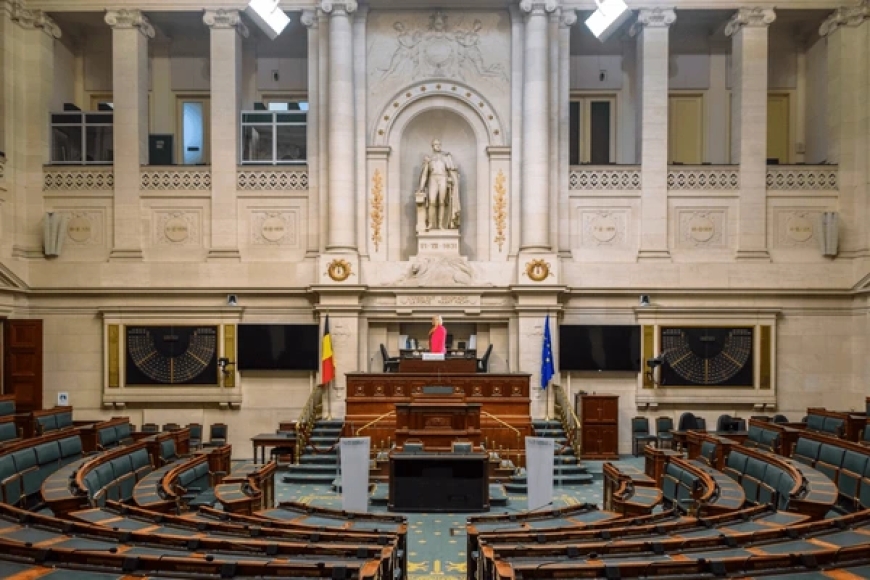Complex Coalition Talks Loom in Belgium After Flemish Nationalist Victory

Belgium faces challenging coalition negotiations following a significant shift in its political landscape. On Sunday, Flemish nationalist parties emerged victorious in the general elections, dealing a blow to Prime Minister Alexander De Croo’s liberal party.
Despite predictions that the far-right, anti-immigration Vlaams Belang party would become the dominant force, the New Flemish Alliance (N-VA) maintained its lead with an expected 22% of the votes, according to provisional results from the Interior Ministry. The Vlaams Belang followed with 17.5%, while the Socialist Voruit party secured about 10.5%. De Croo's party garnered less than 7%, falling behind the far-left.
“This is a very difficult evening for us, we have lost,” De Croo acknowledged. “From tomorrow I will be the outgoing prime minister. But we liberals are strong, and we will be back.”
Sunday's elections coincided with the European Union vote and regional chamber elections, reflecting a broader political shift across the country. An orchestra played outside the European Parliament as part of a protest organized by the citizen movement Avaaz against the rise of the extreme right in European elections.
The election results highlight Belgium's deep regional divisions, with Dutch-speaking Flanders in the north and francophone Wallonia in the south. Forming a government in Belgium, a nation of 11.5 million inhabitants, traditionally requires coalition-building across these linguistic and regional lines.
Mainstream parties have historically excluded Vlaams Belang from power through a "cordon sanitaire" to prevent the spread of extremist ideologies. De Croo's current government, a seven-party coalition, took almost 18 months to form following the previous election. The country holds the world record for the longest period to form a government, taking 541 days after the 2010 vote.
As more than eight million Belgians voted, long queues were reported in Brussels, with the Red Cross distributing water to help voters cope with the heat. There were also reports of irregularities, with some underage voters mistakenly allowed to vote in the regional and federal elections, in addition to the European elections, where teenagers aged 16 and 17 were voting for the first time. Interior Minister Annelies Verlinden stated that the errors appeared limited and promised an investigation into any complaints.
The forthcoming coalition talks will be crucial in determining Belgium's political direction, as the nation navigates its complex electoral landscape and regional identities.













































